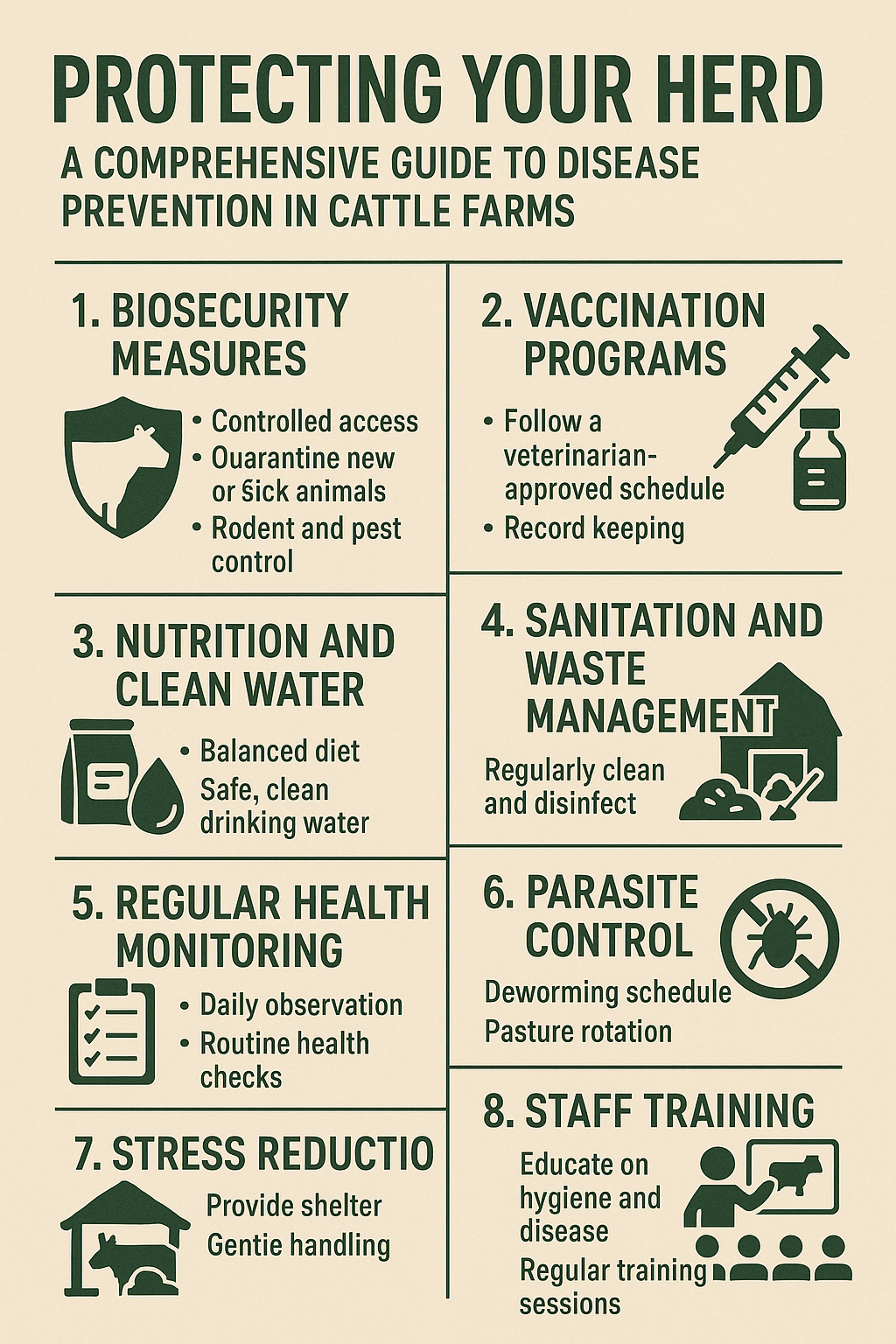
INTRODUCTION
Dairy farming is one of the most important means of providing livelihood and nutritional security to the vast majority of rural masses in India. In order to gain profit from dairying efficient management is of utmost importance.. In dairying the milk production not only depends on the best breeds but also on animal health and good management. Housing plays a very important role in exploiting real potential of dairy animals. It constitutes about 75% of total cost of milk production in dairy animals. Good farm management should be adopted to increase the farm profitability. To ensure longevity and long-term productive capability of dairy animals it is necessary to provide healthy and comfortable environment to them.
WHY EXTRA CARE IS NEEDED IN WINTERS?
Winter is a fact of life in which severe cold temperatures, frequent dangerous wind chills, and blowing are common occurrences. cattle increase body heat production as a response to severe cold exposure by increasing their metabolic rate (heart rate, respiration and blood flow). Although this physiological response enables cows to withstand extremely low temperatures in relative comfort, they also require more feed in order to maintain their body and production. For this cows may require up to 20 percent more feed during cold weather. During this season many animals often refuse to eat, become feverish and pneumonitic. This affects the milk production, health and reproduction of the animal. Production performance of the animal will also be affected when it is too cool because increased proportion of energy will be used for maintenance of body temperature and productivity depends on the ability of the animal to keep normal and stable body temperature.

CARE DURING WINTER SEASON
NUTRITION
Before the weather gets cold, asses the body condition of each animal and adjust the nutrition they are receiving to adequately prepare them to thrive in winter conditions. Cows need more calories to keep themselves warm, especially cows with less than moderate body condition. In case of nutrition especially balanced rations, fortified and supplemented with protein ingredients like whole cotton seed or cakes, becomes important. Rations containing about 17 per cent fiber in the animal feed are also helpful to increase fat percentage in milk. Concentrate mixture should comprise grains (40 per cent), oil cakes (32 per cent), brans (25per cent), mineral mixture (2per cent) and common salt (1 per cent). Apart from this the extra energy-rich grains at approximately 0.8 per cent of body weight should be fed to counter the stress of cold for maintaining normal milk production and other activities.

WATER
Ensuring your herd has access to fresh, clean water is essential to their health. In the winter, battling frozen water buckets and tanks can be a challenge. By utilizing tank heaters, heated buckets or automatic waterers, water is kept ice-free and at a temperature the animal is comfortable drinking.
SHELTER
Increase barn temperature- Supply of heating in the winter keep the animals healthy, less chances of calf pneumonia, diarrhea and mortality. Reduce humidity to ensure better ventilation, preventing excessive moisture in sheds, roof dripping and ground freezing phenomenon. Ventilation should be carried in afternoon. Less water should be used in winter barn to wash the ground and dry cleaning should be followed. In the afternoon sunlight, cattle should be kept out of the barn. Bedding should be provided to protect them from cold floor. Waterers or water tanks should not be frozen. Eave inlets should not be closed. This will restrict the ventilation rate and create wet, damp conditions.

OTHER MANAGEMENT PRACTICES
Having dry teats when the cow leaves the parlor is important. One way to lessen the risk is to dip the teats, allow the dip of about 30 seconds and then blot dry using a paper towel. To protect animals from a sudden drop in temperature, keep the animals in a covered shed/area during the night. Blankets can be used to retain body heat for individual animals. Avoid keeping animals in a damp area, as well as protect them from smoke from fires which are lit to provide warmth. The dampness and smoke increases their chances of contracting pneumonia.

SPECIAL CARE OF CALVES IN WINTERS
Blankets are most useful for calves less than 3 weeks of age that are not yet eating grain. Warm blankets should not be so hot that they cause skin burns or sweating during the day. Prevention of the radiant heat loss. Thick, dry straw or sawdust at resting area should be provided for better insulation. Wind drafts must be avoided because they encourage heat loss. Young dairy calves have very little stored fat they can use for warmth. To cope with cold stress by feed with extra energy should be provided. Additional amount of feed (starter, milk replacer, or milk) that a calf would need to eat to compensate for extra energy used to keep warm during cold weather. Calves less than 3 weeks of age increases the amount of milk or milk replacer to provided extra energy. Repeated changes in the calf’s diet should not be done. Calves that are eating starter, especially those over 3 weeks of age have a lower LCT and can more easily cover their increased energy needs by voluntarily eating more grain is beneficial in terms of generating heat. In cold weather, provision of warm water three times per day for a minimum of 30 minutes each time in order to ensure calves have ample opportunity to drink.

Dr. Navkiran Kaur, Priyanka , Dr. Sehajpal Singh Dhillon and Bhawanpreet Kaur
Senior Research Fellow, Department of Veterinary & Animal Husbandry Extension Education, Guru Angad Dev Veterinary and Animal Sciences University, Ludhiana
Ph.D Scholar, Department of Veterinary & Animal Husbandry Extension Education, Guru Angad Dev Veterinary and Animal Sciences University, Ludhiana
Veterinary Officer, Department of Veterinary & Animal Husbandry Extension Education, Guru Angad Dev Veterinary and Animal Sciences University, Ludhiana
Ph.D Scholar, College of Animal Biotechnology, Guru Angad Dev Veterinary and Animal Sciences University, Ludhiana

















